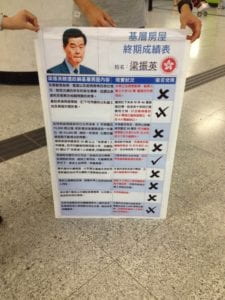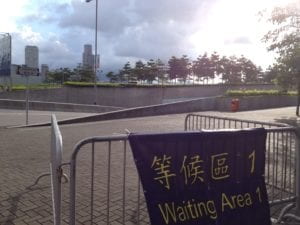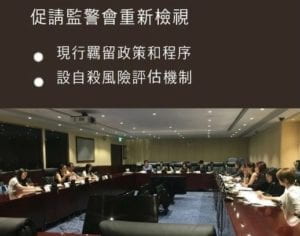Rachel Law
SoCO (Society for Community Organization 香港社區組織協會)
Hong Kong, China
Community organizers at SoCO work closely with not only members of affected communities but also human rights advocates from Hong Kong and other nearby regions and with members of civil society. Frequent contact and interaction with these parties are vital in keeping our work updated with the latest happenings and in allowing us to explore opportunities for collaboration between organizations.
I have been excited and grateful for the many opportunities to participate in these community engagement events during the course of my internship. Even though they are not directly related to my research topic, they have offered me a glimpse of the many other ways of pursuing human rights advocacy, as well as the importance of having a tight-knit human rights community when pushing for change and reform.
During the first few weeks of my time at SoCO, I attended several events held for the local rights activist community, one of which was a report launch on issues related to access to legal representation and pro bono lawyers in Hong Kong. The report, “This Way: Finding Community Legal Assistance in Hong Kong,” has benefited from input from various local human rights organizations as well as Mr. Richard Tsoi, a SoCO community organizer and one of the panelists at the launch. The presentation and result findings were eye-opening, as they revealed the gaps in current government legal assistance programs in providing timely help to marginalized groups, especially ethnic minorities and low-income families—an issue previously lesser known to the general public.

Aside from collaboration between local organizations, human rights advocates in Hong Kong often work with regional and international parties to bring local issues into discussion on a broader level, and vice versa. These discussions include formal seminars, such as a roundtable I participated in in May with Mr. Michel Forst (UN Special Rapporteur on the situation of human rights defenders) on the threats, challenges, and opportunities in promoting human rights, as well as less formal programs. One example of these programs is Just Asia, a news program focused on human rights issues in Asia, hosted by Asian Human Rights Commission TV, which my advisor, Annie, helps out with weekly as the program’s host.

Collaboration with fellow human rights advocates takes many different forms and so does the interaction with press and media. It has been interesting to see and learn how to bridge the gap between human rights advocacy and advocacy on traditional media. Human rights theories and violations alone might not be enough to catch readers’ attention; thus, in addition to releasing research reports and policy recommendations, we often tried to include sharing of cases by gaifongs (街坊, members of the community) that the readers might resonate more with.
At the same time, SoCO regularly organizes exhibitions and other projects as “softer” actions that bring public attention to urgent social issues such as caged homes and stigma against former inmates.

One theme runs through all the numerous programs, actions, and events that SoCO does: the spirit of community organizing, which emphasizes educating members of the community to the importance of speaking up for oneself and being more present and open about the issues they face. In contrast to common perception, however, speaking up does not necessarily imply standing in opposition to parties of authority. In fact, very often, gaifongs and human rights advocates are speaking up to explore collaboration with policymakers, who at times welcome opinions from stakeholders. An example would be a follow-up meeting initiated by the Independent Police Complaints Council (IPCC) on custody conditions (see my first blog for more details), in which IPCC representatives were open to and eager about recommendations devised by SoCO.

Next time, I will share how my experiences over the past two months have been summed up in my first ever press conference and report on improving a prison internal complaints system. Stay tuned!